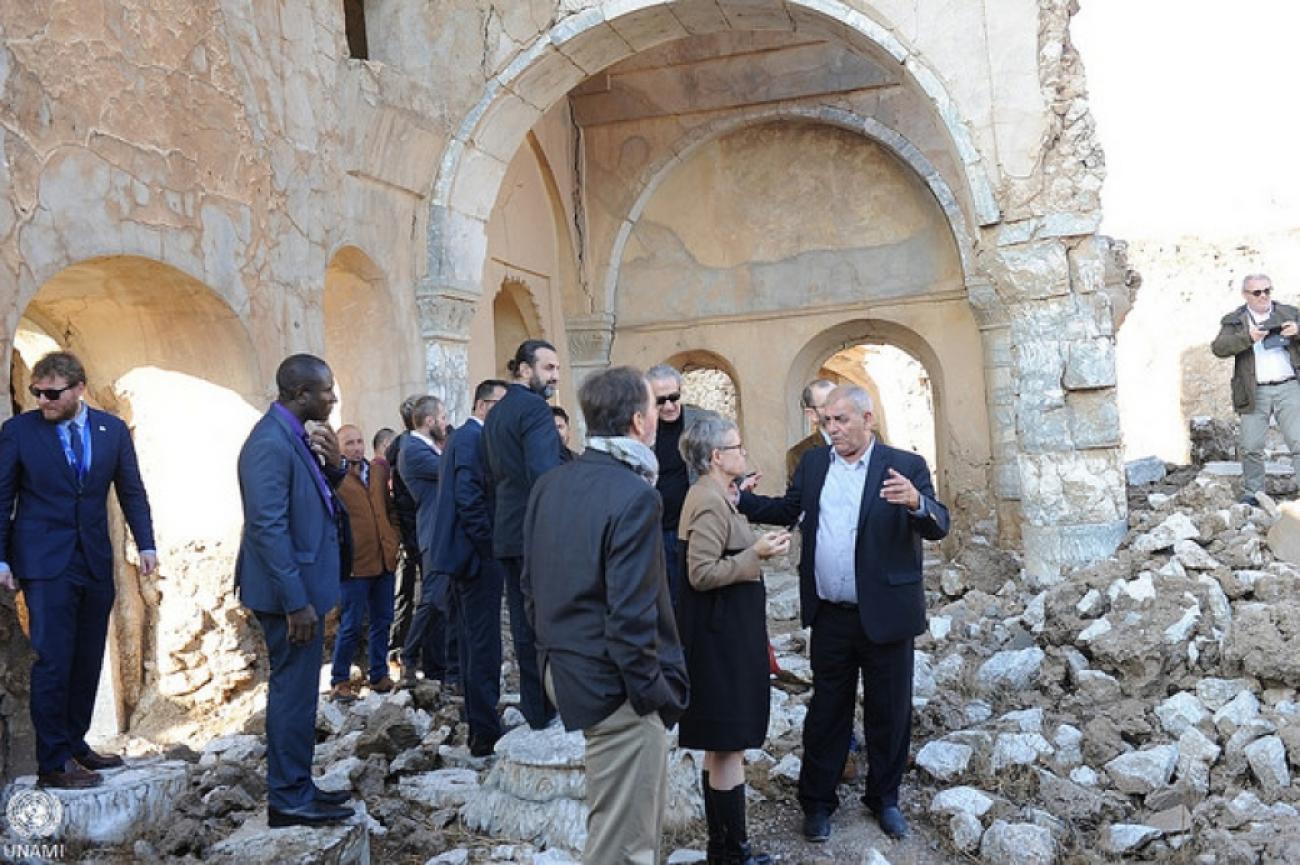Kirkuk, Iraq, 12 November 2018 - The Qishla and Citadel of Kirkuk, two cultural heritage sites symbolising the area’s rich multicultural history but buffeted by time and conflicts, are in desperate need of restoration to preserve them for future generations.
In line with UN support for the country’s diversity and preservation of its historical sites as symbols that boost reconciliation and coexistence, the Deputy Special Representative for Iraq of the UN Secretary-General, Ms. Alice Walpole, led a team from the UN family in Iraq comprising UNESCO, UNAMI and UN Development Coordination Office on visits to the sites on 05 November 2018 to assess the structures and explore ways to assist in the restoration work.
Built in 1863 as the winter headquarters for the Ottoman Army garrison, the Qishla is in a state of near collapse today, leading to serious concerns that if not stabilized the remaining structure could soon fall down. The Citadel is the oldest part of Kirkuk, built in 884 BC as a defensive wall 18 metres high. Later, towers were added and the Citadel evolved as the heart of the city, with a 1,000-year old minaret and the Red Church.
Dr. Iyad Tariq, Director of the Department for Antiquities and Heritage in Kirkuk, grew up on the Citadel. Dr. Tariq remembers how when he was a young boy the Citadel was the center of town. It was home to 850 families, a school, two mosques, minarets, a church, monuments, restaurants, cafes, recreational areas and a bustling market. With support from UNESCO and the international community, the Citadel can be restored to its former glory, Dr. Tariq said.
The Head of the UN Development Coordination Office in Kirkuk, Mr. Martijn Dalhuijsen, says that the Citadel exemplifies the multi-cultural society of Kirkuk. The citadel contains Arabic, Christian, Islamic, Jewish, Kurdish, Seljuk, Turkish and Turkmen moments. Just like the Forum in Rome, it would be a valuable symbol of reconciliation and recovery to restore in the heart of the diverse City of Kirkuk. Restoration would also create many new job opportunities for artisans and craftsmen, construction workers, while boosting tourism, religious pilgrimage, and instill a sense of pride for Kirkukis after the liberation of parts of the Governorate from Da’esh terrorists.
Prior to visiting the sites, meetings were held between Giovanni Fontana, an architect from UNESCO who specializes in historic preservation, and Sami Al-Khoja, a Cultural Programme Officer who worked on the restoration of the Citadel in Erbil. Supporting the assessment visit were H.E. Mr. Rakan Al-Jabouri, Acting Governor of Kirkuk, Dr. Tariq of the Department of Culture, and Colonel Wisam Abdullah of the Kirkuk Antiquities Police.


